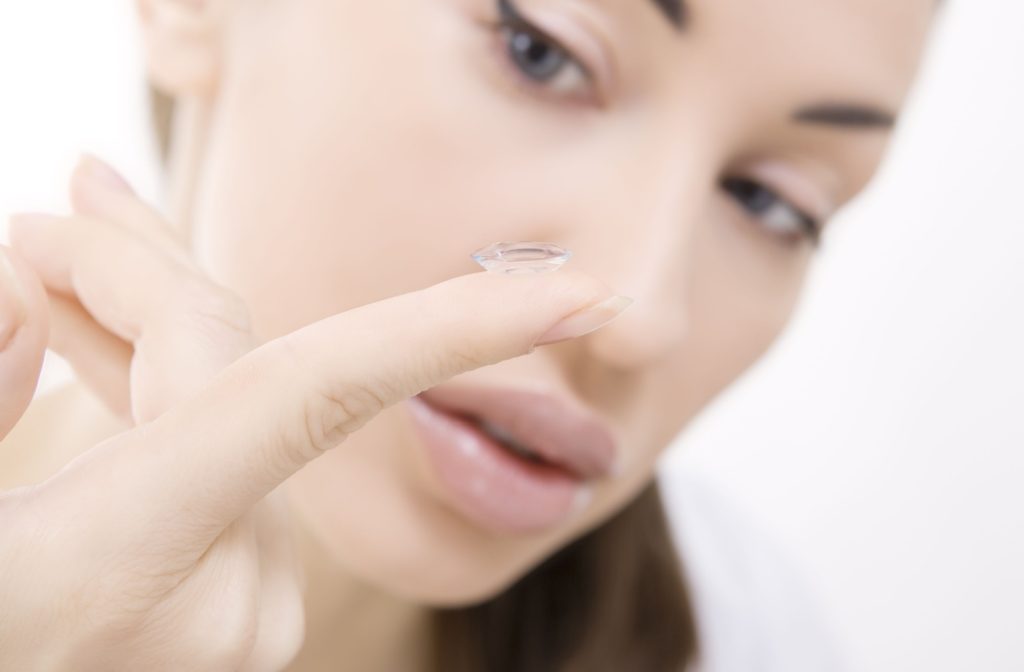Wearing contact lenses can offer convenience and comfort over traditional glasses, but they sometimes come with the unwelcome side effect of dry eyes. For many contact lens users, dry eyes can lead to irritation, discomfort, and even blurred vision. Understanding how to prevent and manage this condition is crucial for both the health of your eyes and the overall comfort of wearing your lenses.
To prevent dry eyes when wearing contact lenses, here are some helpful tips:
- Choose the right type of contacts
- Properly clean and store your lenses
- Avoid over-wearing your lenses
- Use lubricating eye drops
- Take breaks from your lenses
- Seek professional help
Choosing the Right Type of Contacts
The first step in preventing dry eyes is to choose the right type of contacts for your eyes. There are various types available, such as daily disposable, weekly or monthly disposables, and extended-wear lenses. Each type has different levels of oxygen permeability and moisture retention. Consider consulting with your eye doctor to determine which type would best suit your eyes and lifestyle.
Properly Clean & Store Your Lenses
Proper hygiene when handling contact lenses is crucial to maintain healthy eyes and prevent dryness. Always wash your hands before touching your lenses, and never use tap water to clean them as it may contain harmful bacteria. Use the recommended cleaning solution and follow the instructions provided by your eye care professional for storing and replacing your lenses.
Avoid Over-Wearing Your Lenses
Wearing contacts for extended periods can contribute to dry eyes. It is essential to follow the recommended schedule for wearing and replacing your lenses. For example, daily disposable lenses should not be worn for longer than a day, while monthly disposables need to be replaced every month. Additionally, make sure to remove your contacts before going to bed as sleeping with them on can lead to dryness and potential eye infections.
Use Lubricating Eye Drops
Even with proper lens care and hygiene, some people may still experience dry eyes while wearing contacts. In such cases, lubricating eye drops can provide relief and help keep your eyes moist and comfortable. Consult with your optometrist to find the right type of drops for your specific needs.
Take Breaks from Your Lenses
If you work in front of a computer for long periods, take breaks to rest your eyes and give them a break from wearing contacts. The same applies if you spend time in dry or windy conditions. This will allow your eyes to naturally produce tears and prevent discomfort and irritation.
Seek Professional Help
If you experience persistent dryness or discomfort while wearing contact lenses, consult with your eye care professional. They can evaluate the fit of your lenses and recommend different options or treatments that may alleviate your symptoms.
Understanding Dry Eyes & Contact Lenses
Dry eyes are a common condition that arises when your tear ducts fail to produce an adequate amount of tears or when the tears produced are of poor quality. Tears are essential for maintaining eye health, as they provide lubrication, protect against infection, and remove debris. This condition can be exacerbated by factors such as prolonged screen time, environmental conditions like wind or smoke, and wearing contact lenses.
Contacts can significantly reduce the amount of oxygen reaching the eye, leading to increased dryness and discomfort. Some medications and medical conditions can also contribute to insufficient tear production, making it important for individuals experiencing persistent dry eyes to consult with an eye care professional for proper diagnosis and management.
Professional Treatment for Dry Eyes
Depending on the severity of your dry eyes, your eye care professional may prescribe different courses of action to alleviate your symptoms. These can include:
- Eyedrops or artificial tears: These can provide temporary relief from dry eye symptoms by adding moisture to the eyes. They may also contain ingredients that help reduce inflammation and promote tear production.
- Changing contact lens brands or types: Your eye care professional may recommend a different type of contact lens material or design that allows for better oxygen flow to your eyes.
- Meibomian gland expression: This procedure involves manually expressing the oils from the meibomian glands in the eyelids to improve tear quality.
- Warm compress: This treatment can help loosen and soften any blocked oil glands in the eyelids, improving tear production.
- Punctal plugs: These small silicone or gel plugs are inserted into the tear ducts to keep tears from draining too quickly, allowing them to stay on the surface of the eye longer.
In addition to these treatments, it is essential to make certain lifestyle changes to manage dry eye symptoms. These include:
- Taking breaks from prolonged screen time and remembering to blink regularly.
- Using a humidifier in your home or office if you live in a dry climate or work in an environment with low humidity.
- Wearing sunglasses when outdoors to protect your eyes from wind and sun exposure, which can worsen dry eye symptoms.
- Staying hydrated by drinking plenty of water throughout the day.
It is also crucial to address any underlying medical conditions that may be contributing to your dry eyes. These can include allergies, hormonal changes, and certain medications. Consulting with your primary care physician or specialist may help identify and manage these factors.
Discover Personalized Eye Care Support at Headwaters Optometry
Managing dry eyes while wearing contacts involves a multifaceted approach that combines lifestyle adjustments, proper contact lens care, and medical treatments. Selecting the right type of contact lenses and following good hygiene practices are foundational steps.
Most importantly, seeking professional advice and addressing underlying health conditions is crucial for a comprehensive solution. At Headwaters Optometry, our team of eye care professionals can provide personalized recommendations and treatments to help you manage dry eyes while wearing contacts effectively. Don’t hesitate to reach out for help if you are experiencing dry eye symptoms–our team is here to support you every step of the way.




